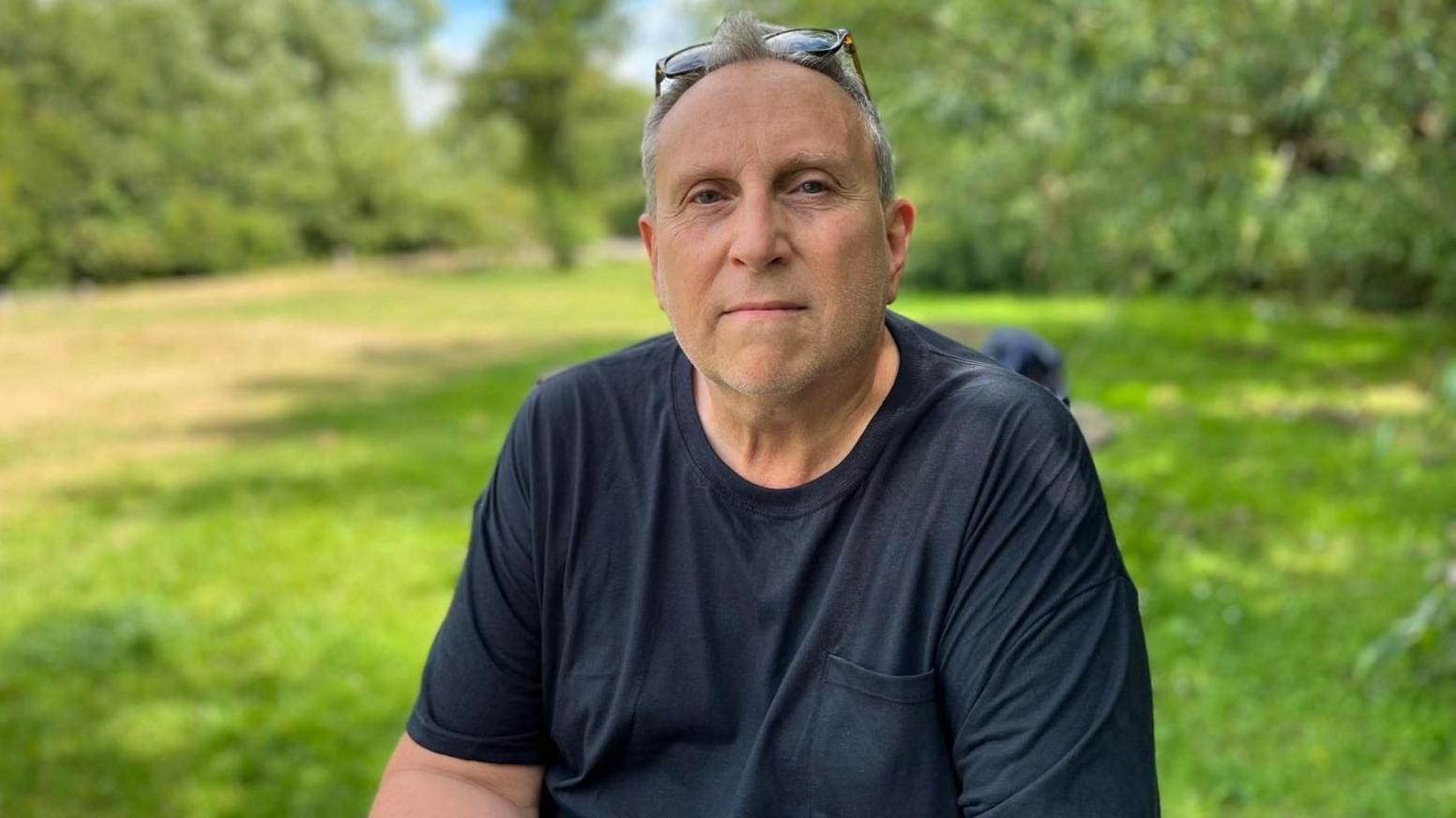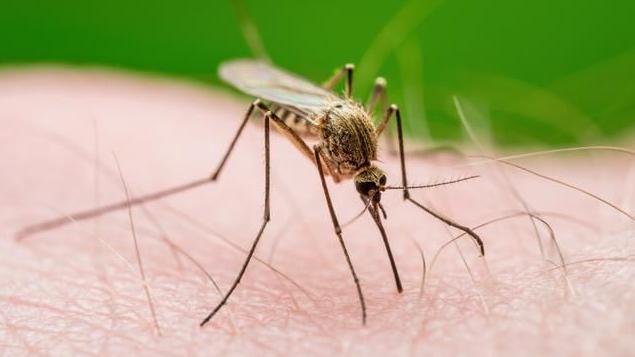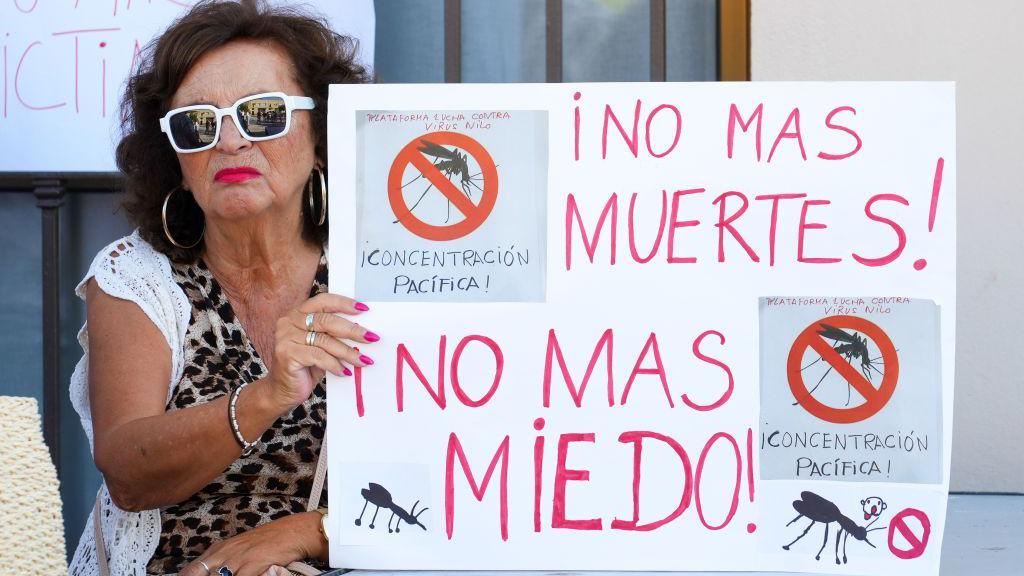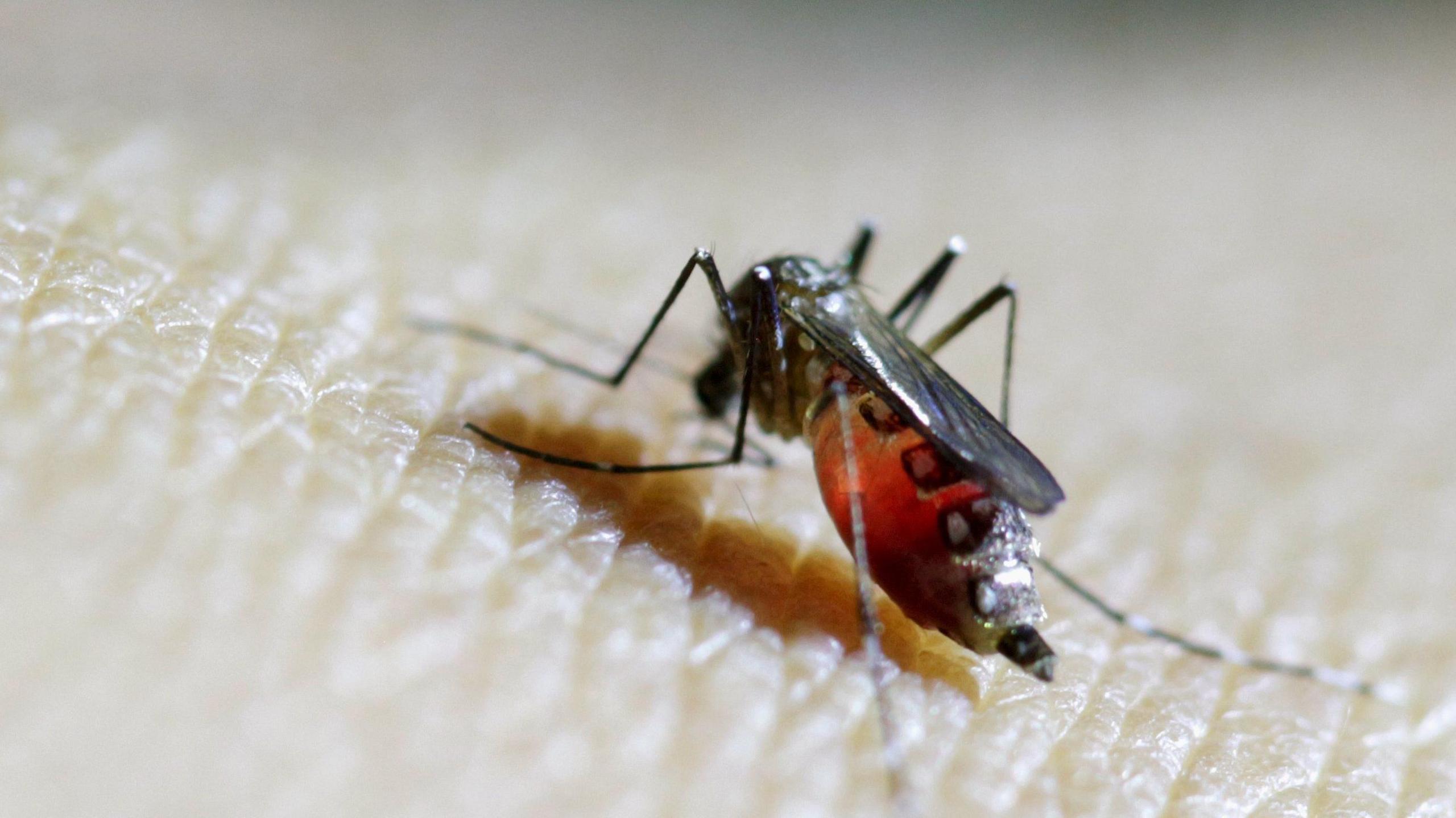'One mosquito bite dramatically changed my life'

Mr Skinner said his condition forced him to take early retirement
- Published
A man who caught West Nile virus and became seriously ill after a mosquito bite is trying to raise awareness of the disease.
Jim Skinner, 64, from Hampshire, was bitten in Goa, India, last year and now suffers from permanent neurological problems.
He is one of seven UK residents who have, to date, caught the virus from abroad.
However, in 2023 West Nile virus was detected in a UK mosquito for the first time, and experts have said with a warming climate people need to prepare for more cases in the future.
Mr Skinner said he went from being "a fit and able person" to someone who was "disabled and has to think about what they can and can't do on a day-to-day basis".
"The symptoms presented like a stroke. It was really worrying," he said.
"I had weakness down the left hand side, palsy on the left hand side and I got tremors... the weakness and tremors are still there a year on."

Jim Skinner was bitten by a mosquito while on a river cruise in Goa, India, in 2024
West Nile virus mainly spreads between birds, but can also infect people if they are bitten by an infected mosquito.
In humans it either causes no symptoms or only minor ones, like headaches, fevers, and skin issues, but in rare cases it can cause brain infections and death.
The virus was first detected in the West Nile region of Uganda in the late 1930s, but has spread to other continents like Asia, North America and Europe.
There have been no human cases of locally-acquired West Nile virus in the UK to date, but two years ago the first UK mosquito carrying the virus was detected near Retford, Nottinghamshire.
'No longer tropical'
There is no vaccine for the virus but the University of Liverpool, along with The Pandemic Institute, is trying to create one that would also incorporate other mosquito-borne diseases.
Dr Krishanthi Subramaniam said a vaccine was "needed because we are seeing cases of West Nile and other viruses that belong to this family increasing".
She said: "Due to the warmer weather we are seeing; a lot of the mosquitos that transmit these viruses reside locally, in a lot of countries in Europe, like France and Spain.
"Spain had a big outbreak of West Nile last year.
"I don't think there are any more 'tropical viruses'... the geographic barrier of these viruses no longer exist because of climate change."

The team in Liverpool hopes for a new vaccine to be in circulation in less than 10 years
Experts at the University of Liverpool are colonising UK-based mosquitos to test how well they can carry viruses like West Nile.
Marcus Blagrove, head of integrative virology, said their research showed that some species of mosquito could carry and transmit the virus.
"The Culex molestus mosquitos are very widespread and we have our own population in the UK," he said.
"In Europe they are one of the main transmitting species of the virus."

A colony of Culex molestus mosquitos which are able to transmit West Nile virus
Matthew Baylis, a professor at the University of Liverpool, said: "We are seeing as our climate warms, mosquitos are spreading, so the risk of mosquito-borne diseases are increasing.
"I thought it was a matter of time that we would detect West Nile in the UK, because it has been detected in northern Germany and Belgium recently.
"In most people the virus causes no effects, but in a small percentage it makes people sick and in an even smaller percentage, it can lead to brain infection and death.
"Before if you were bitten by a mosquito in the UK, it would have been just a nuisance, but in the future that mosquito could transmit a disease to you, so people need to be prepared to avoid bites as best as they can and take precautions."
'Very low' risk
Prof James Logan, from the London School of Hygiene & Tropical Medicine, has previously said the discovery of a UK mosquito carrying West Nile Virus was "serious" but there was no need for the public to be alarmed.
The UK Health Security Agency (UKHSA) also said there was no evidence the virus was currently spreading in the UK and the risk to the general public was "very low".
Mr Skinner is still recovering after catching the virus last year and said he wanted to raise awareness because "most people have not heard of West Nile virus".
"I was treated with some scepticism when I told some people what I had," he said.
"It is worrying that we now do have the right weather conditions for this virus and if more people get it, it could mean more lives turned upside down, like mine."
Get in touch
Do you have a story BBC Hampshire & Isle of Wight should cover?
You can follow BBC Hampshire & Isle of Wight on Facebook, external, X (Twitter), external, or Instagram, external.
Related topics
- Published2 September 2024

- Published25 May
